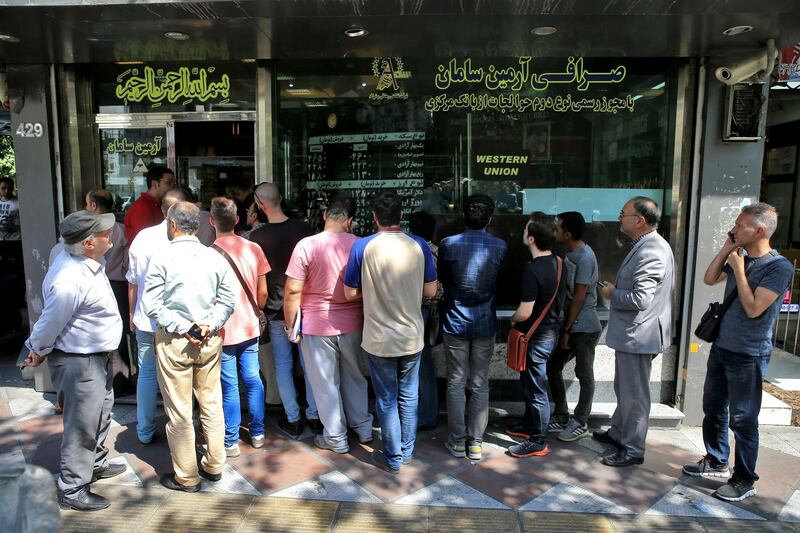Iran's currency plunged to a new low against the US dollar yesterday, dragged down by the worsening state of the nation's economic woes following the re-imposition of sanctions by United States over its nuclear ambitions.
The dollar strengthened as much as 8 per cent to 150,000 rials, according to Bonbast, a website that tracks the unofficial currency market.
As worried residents of Tehran lined up outside, many exchange shops in downtown Tehran simply turned off their electronic signs showing the current rate for the US dollar. Some Iranians who wanted hard currency sought out informal money traders on street corners.
"Everyone's just nervous," Mostafa Shahriar, 40, who was seeking dollars, told AP.
The rial has lost about two thirds of its value against the green back since the beginning of this year. Growing demand for dollars stoked by concerns that the impact of US sanctions would spill beyond the country’s crude shipments and will affect Iran’s broader export sector has also added to the white-knuckle ride for rial traders. Authorities are trying to curb the foreign exchange crisis, cracking down on traders and currency exchanges, which they accuse of hoarding dollars and creating an artificial crunch. However, nothing the government has done so far has helped, as pressure of sanctions mount with every passing day.
Ever since the rial began its slide, people have been trying to hedge by withdrawing cash from the banks and buying gold and major currencies including dollars, euros, and the British pound to protect the value of their capital for the tougher times ahead.
The government and lawmakers have also shaken up financial policy in recent months in a failed attempt to calm the markets. The Iranian parliament last week sacked the minister of economic affairs and finance, the latest official to lose his job in a series of high-profile changes. His departure follows the removal of the minister of labour in early August and a change of guard at the country’s central bank in June.
Read more: From the economy to foreign policy, Rouhani's malaise is self-inflicted





